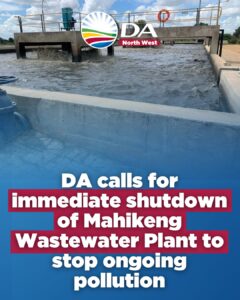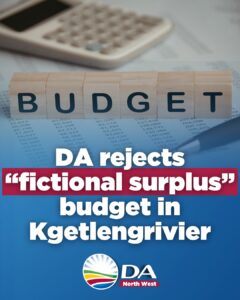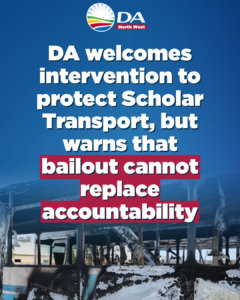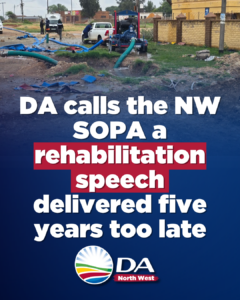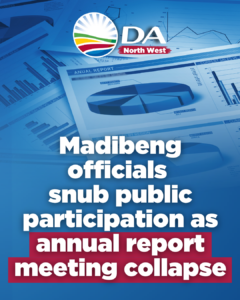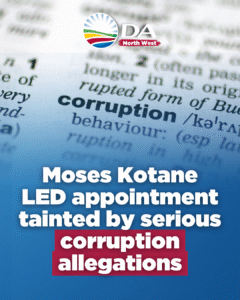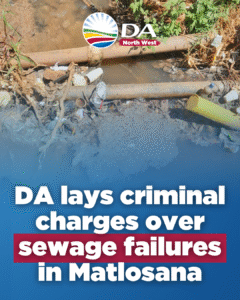Note to Broadcasters: Please find attached soundbites in English, Afrikaans and Setswana by Johan Zerwick
The Democratic Alliance (DA) caucus of JB Marks calls on the Executive Mayor and Municipal Manager to conduct an urgent investigation and report to Council on how solar water-heater units meant for low-income households have remained in storage for years. The DA further calls for an urgent audit to confirm the exact stock numbers and condition, as well as a report detailing how many units were installed and by whom.
This follows an IDP meeting on 8 May 2025 at the Lusaka Hall for Wards 4, 16, and 19, when a shocking discovery was made. Residents attending the meeting had to sit outside in the cold because the hall was full of several hundred solar water-heating systems stored away.
The units, supplied under the National Solar Water Heater Programme, were meant to be installed in low-income homes to cut electricity costs and ease energy poverty. Instead, they have gathered dust for years while residents continue to pay for high power bills or gas and wood to heat water.
Pictures taken confirm the scale of neglect. Dusty steel frames are piled haphazardly, cardboard cartons have buckled and spilled their plastic fittings, and hundreds of cylindrical tanks and boxes labelled “Glass Vacuum Tube” line the walls of a dimly lit Lusaka Hall. The condition of the components indicates they have been idle for years, raising fears that corrosion, breakage, and theft will soon render many units unusable. (See pictures here, here, here, and here.)
Key concerns include fruitless expenditure, with solar units left in storage for years, exposed to theft, weather damage, and obsolescence, wasting public funds that should benefit residents. Permanent guards have been stationed at the hall since 2018 to protect them. There’s a lack of accountability, as no clear timeline exists for appointing installers or training local artisans, despite the simplicity of two-week installer courses cited in parliamentary reports. JB Marks is also missing out on environmental benefits as each solar geyser could cut a household’s carbon footprint and help JB Marks meet provincial climate commitments, savings for residents on electricity, and even bring down the monthly Eskom bill of JB Marks.
The DA further requests the Executive Mayor and Municipal Manager to publish a transparent installation schedule, prioritising homes of the elderly on the indigent register. A report to Council on any disciplinary or contractual action against officials and contractors whose inaction led to this situation, and engage the Department of Mineral Resources and Energy to unlock any remaining programme funds for installation kits and local skills training.
Residents of Ikageng cannot keep paying for government inertia. We demand swift action because winter is here, and we will not allow these geysers to become yet another symbol of wasted opportunity.
